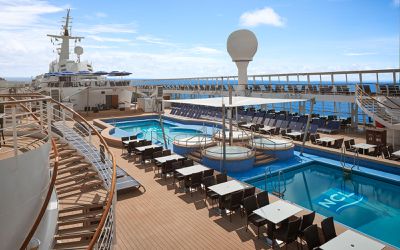
The CDC may offer a cruise ship program that could help to prevent the transmission of the COVID-19 disease. Find out more about the disease's color code, vaccination recommendations, and conditional sailing certificates. You can also learn about the risks associated COVID-19 transmission. The CDC will provide advice and recommendations for cruise line operators. Ultimately, these steps will help cruise ships improve their safety for all their passengers.
COVID-19 cruise ship programs by CDC
The Centers for Disease Control and Prevention (CDC) recently issued new guidance for COVID-19 viruses in cruise ship water. The guidance was based on the latest scientific evidence and will continue to be updated. New guidance will be sent to cruise ships. In the meantime, travelers should contact their cruise line directly for any information about COVID-19. Check out the latest updates below for more information. Al Tompkins, a senior faculty member, wrote this article.

The color-coding system used by the CDC to identify COVID-19 cases
After months of rolling back regulations, the Centers for Disease Control and Prevention (CDC) has retired its "COVID-19 Program for Cruise Ships." Although the program is no more active, the CDC continues to publish guidance to aid cruise lines in preventing the spread. The CDC's color-coding system helps cruise lines identify outbreaks by letting passengers know which ship has the highest risk of transmitting the virus.
CDC recommends COVID-19 vaccines
Cruise lines can now take advantage of a new tiered vaccination system to increase the safety of their passengers. The CDC recommends that passengers and crew members receive COVID-19 vaccinations at ninety percent. Cruise lines must now post information about their COVID-19 vaccination status online. This allows passengers and crew to check if there is a high rate of COVID-19 on the ship. The CDC recommends that travelers obtain the COVID-19 vaccination before boarding a boat. Additionally, testing should be performed within one-day of embarkation.
The conditional sailing certificate issued by the CDC
The certification statement for a cruise ship must include information that assists the CDC in assessing the safety of passengers, crew and crew. It should also address any safety and health issues and their resolution. In order to obtain a COVID-19 Conditional sailing certificate, cruise ship operators must submit any records, including passenger and volunteer test results. Additionally, cruise ship operators must submit to the CDC an after-action log after each incident. This report should include a detailed plan.

CDC's guidance for commercial repatriation of U.S.-based persons with COVID-19
HHS has published updated guidelines for commercial repatriation to U.S.-based people with COVID-19. HHS will continue to interact with stakeholders as well as the Return to Workplace Task Force. Employers should also ensure they have developed and implemented phased plans for return to work. The guidelines should also be communicated to employees.
FAQ
Are there any drawbacks to cruising
There are some important things to consider when considering the pros & cons of cruising. Some people might not want to spend all of their vacation on a boat. Others might prefer to stay closer to shore or in a hotel. Others may be uncomfortable traveling so far from home. However, these fears can be easily overcome by choosing a cruise that includes plenty of time ashore.
What kind of cabin should I get?
It is important to consider the space you require when you choose a cabin. Do you feel comfortable sharing a bathroom? Would you prefer a private bathroom? Are you sensitive to noise? You will spend the majority of your time in your dining area, or relaxing in your private stateroom. Consider whether you would prefer an interior or balcony view. Balconies are a bit more spacious, but can sometimes be loud. Interior views tend to be quieter than balconies.
Is a cruise all-inclusive on a ship?
Because they don't offer meals for people with special dietary requirements, cruise ships aren't all-inclusive. They also do not provide room service, laundry services, or other amenities such as pools, gyms, spas, etc.
Some cruise lines offer "all-inclusive", which covers everything but alcohol. These packages usually include airfare, hotel accommodations, entertainment, and beverages.
Are there any other things I need to know before I go on a cruise?
Before you take your first cruise, you need to know a lot of things. First of all, remember that you will be traveling with other people. Be kind to these people, as you will never know their opinions on anything. Be aware that you will likely be eating with strangers. Dress appropriately. Don't wear shorts, tank tops, or slacks on deck. Wear comfortable clothing you don't have to worry about getting muddy. You should be prepared for extreme temperatures. Make sure you pack plenty of sunscreens. For those times when you are outside, make sure to bring a hat, sunglasses and a lightweight jacket. Don't forget to take responsibility for your safety. Don't drink & drive!
Do I need to book my cruise before booking my flight?
It all depends where you are going. It's better to book your cruise earlier than later because you have more flexibility on dates. You could, for example, plan your cruise around the summer months if you are sure you will be visiting Europe. On the other hand, if you are going to Asia or South America, you might want to book your cruise later to avoid high season prices.
Statistics
- You'll need to budget around $80 per person per day for this option – and an additional 18% gratuity. (travel.usnews.com)
- In addition, 10 to 15 percent gratuity is typically added to bar bills — for alcohol and soft drinks — and gratuities are applied to spa treatments. (cruiseline.com)
- For an example of savings, Royal Caribbean offers up to a 40% discount with a dining package. (travel.usnews.com)
- If you're traveling alone, you may also need to factor in a single supplement, adding up to as much as 100% of the cruise fare. (travel.usnews.com)
External Links
How To
How to avoid getting seasick on a cruise
A hat can help prevent seasickness when you cruise. By keeping the head in a fixed position, a wide-brimmed hat prevents motion sickness.
The hat keeps water from the face and reduces the moisture in the air. This allows people who are prone to dizziness from inhaling moist air to breathe more easily.
Another tip is that you should drink lots of fluids. Avoid alcohol or caffeine. These drinks dehydrate your body, making it more difficult for fluids to move around in your stomach. Salt levels can be decreased by drinking enough liquids. Salt causes the body's retention of water, which can lead to nausea.
You may feel nauseated if you eat something salty. Salty foods can cause your stomach to produce more hydrochloric acids, which aids in breaking down food particles.
There are medication options available to help seasickness. You should be aware that side effects can include dry mouth and constipation as well as headaches.